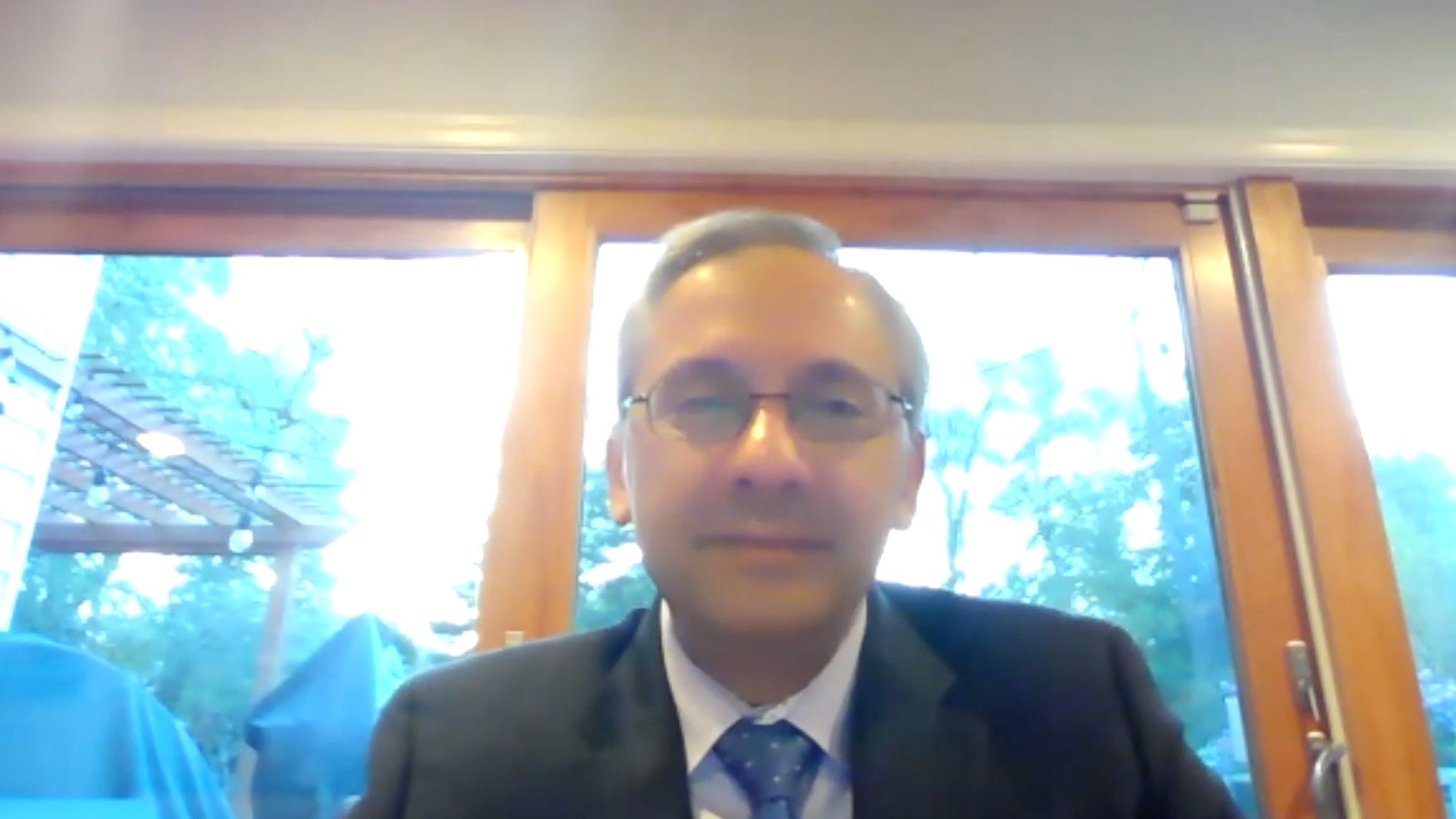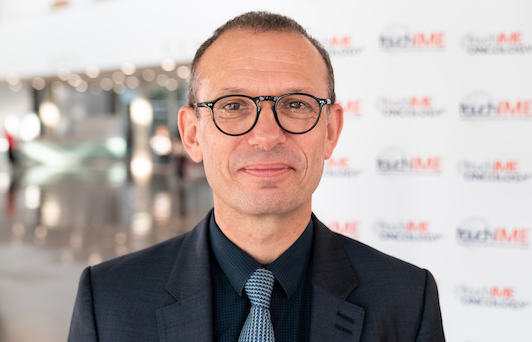Locally advanced pancreatic cancer represents around 30% of all newly diagnosed pancreatic cancers and can be challenging to treat. In this touchONCOLOGY interview, we speak with Dr Michael Pishvaian (Johns Hopkins University School of Medicine, Baltimore, MD, USA) to discuss the challenges in the treatment of locally advanced pancreatic cancer.
Dr Pishvaian presented an abstract entitled ‘Targeted intra-arterial gemcitabine vs. continuation of IV gemcitabine plus nab-paclitaxel following Induction with sequential IV gemcitabine plus nab-paclitaxel and radiotherapy for unresectable locally advanced pancreatic cancer (TIGeR-PaC) – phase III trial interim analysis’ (Abstract CT084) at the American Association for Cancer Research Meeting 2023, 14–19 April 2023.
Click here to view the TIGeR-PaC interim results.
Question:
What are the challenges in the treatment of locally advanced pancreatic cancer? (0:15)
Disclosures: Micahel Pishvaian is on the advisory board for Astellas, Pionyr and Trisalus and a consultant for Astra Zeneca, Ideaya, Merck, Merus and Seattle Genetics. He has received grant/research support from Amgen, Arcus Bio, Astellas, AstraZeneca, Bayer, Biomed Valley Discoveries, BMS, Boerhinger Ingelheim, Caris, EISAI, Exelixis, Foundation Medicine, Hutchinson Medipharma, Ideaya, Incyte, Ipsen, Merck, Natera, Novartis, Pfizer, RenovoRx, Repare Tx, SeaGen, Seattle Genetics, Taiho, Takeda, Tempus, Tizonia and Tesaro. He is a major stockholder in Perthera.
Support: Interview and filming supported by Touch Medical Media. Interview conducted by Danielle Crosby.
Filmed as a highlight of AACR 2023
Access more content on Pancreatic Cancer here
Transcript:
My name is Mike Pishvaian, I’m an Associate Professor in Medical Oncology at Johns Hopkins University School of Medicine.
Q. What are the challenges in the treatment of locally advanced pancreatic cancer?
Locally advanced pancreatic cancer probably represents about 30% of all newly diagnosed pancreatic cancers and can be challenging because, first of all, technically, systemic therapy has never been proven to improve the outcomes for patients with localized pancreatic cancer. Although we do certainly assume that it does in the way that it does for patients with metastatic and advanced disease. But the other challenge is that about 10%–15% of patients with locally advanced pancreatic cancer can be rendered operable with systemic chemotherapy. But we just have no idea who those patients are, whether it is patients with certain genetic biomarkers or other characteristics that are going to render them potentially operable. The third thing about locally advanced pancreatic cancer that is challenging is that it is often very symptomatic as these tumours, which have grown to surround the local blood vessels, can also be very symptomatic. So symptom management, quality of life improvement, is actually equally important in the treatment of locally advanced pancreatic cancer, as is extending the patient’s overall survival.
Subtitles and transcript are autogenerated





